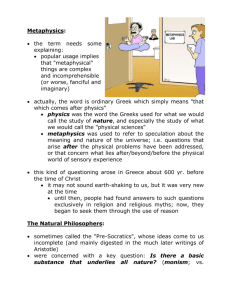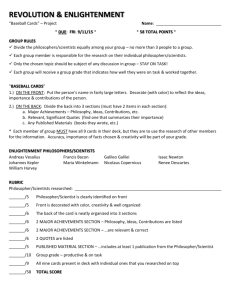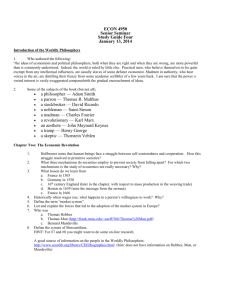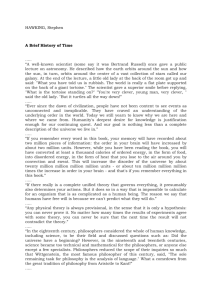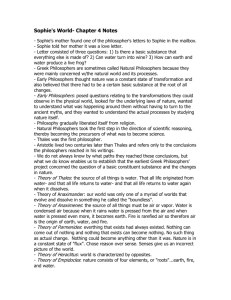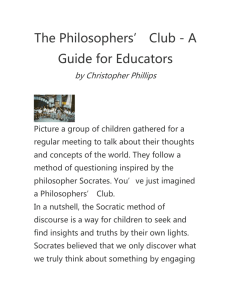Other Philosophies
advertisement
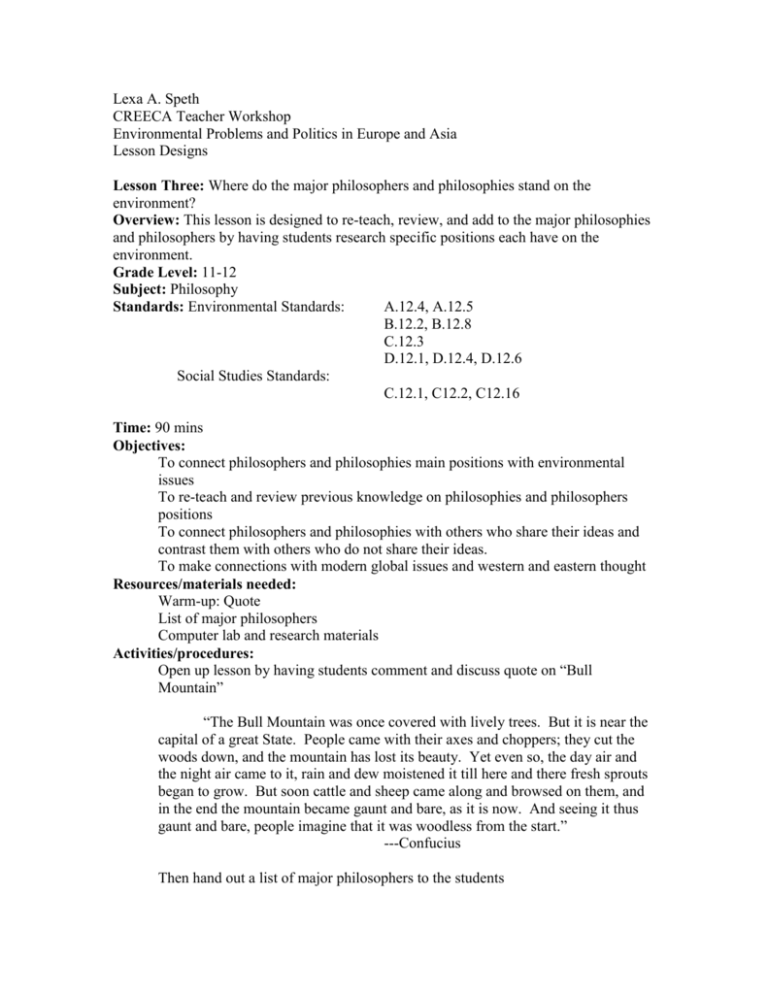
Lexa A. Speth CREECA Teacher Workshop Environmental Problems and Politics in Europe and Asia Lesson Designs Lesson Three: Where do the major philosophers and philosophies stand on the environment? Overview: This lesson is designed to re-teach, review, and add to the major philosophies and philosophers by having students research specific positions each have on the environment. Grade Level: 11-12 Subject: Philosophy Standards: Environmental Standards: A.12.4, A.12.5 B.12.2, B.12.8 C.12.3 D.12.1, D.12.4, D.12.6 Social Studies Standards: C.12.1, C12.2, C12.16 Time: 90 mins Objectives: To connect philosophers and philosophies main positions with environmental issues To re-teach and review previous knowledge on philosophies and philosophers positions To connect philosophers and philosophies with others who share their ideas and contrast them with others who do not share their ideas. To make connections with modern global issues and western and eastern thought Resources/materials needed: Warm-up: Quote List of major philosophers Computer lab and research materials Activities/procedures: Open up lesson by having students comment and discuss quote on “Bull Mountain” “The Bull Mountain was once covered with lively trees. But it is near the capital of a great State. People came with their axes and choppers; they cut the woods down, and the mountain has lost its beauty. Yet even so, the day air and the night air came to it, rain and dew moistened it till here and there fresh sprouts began to grow. But soon cattle and sheep came along and browsed on them, and in the end the mountain became gaunt and bare, as it is now. And seeing it thus gaunt and bare, people imagine that it was woodless from the start.” ---Confucius Then hand out a list of major philosophers to the students Have the students group in twos or threes Explain to them that they are to researched an assigned philosopher according to his or her position on the environment Have each group summarize the main position their philosopher promotes according to the environment Have each group share their results with the class Assessment/Evaluation: Have students look at the list of summaries Have the class determine which tradition each summary belongs to the eastern tradition or the western tradition Once each philosopher or philosophy has been identified as an eastern or western tradition, see if the students can draw any conclusions from the different global attitudes towards the environment. A hint to the instructor, with few exceptions, western tradition philosophers generally view humans as separate from the environment—more of a steward of the environment. Eastern tradition philosophers generally view humans as part of the cycle—related to everything and interwoven into the patterns and problems of the globe. Have the students in a paragraph write up their own personal conclusions to turn in for evaluation. What do the philosophers and major philosophies believe about the environment? Directions: In your groups, researched your assigned philosopher or philosophy as to what they believe humans approach to the global environment should be. Summarize your research to present to the entire class. Fatalism Socrates/Plato Aristotle Aquinas Locke Descartes Spinoza Hume Taoism Buddhism Christianity Islam Judaism Existentialism Marx Freud Darwin



